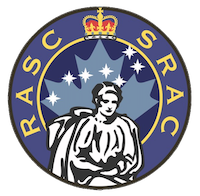William Henry Pickering (February 15, 1858 – January 16, 1938) was an American astronomer, brother of Edward Charles Pickering. He was elected a Fellow of the American Academy of Arts and Sciences in 1883. William Henry Pickering was employed in the establishment the Boyden Station of Harvard College Observatory in Aréquipa, Peru between 1890 and 1892, taking many plates of Mars, the Moon, stars of the southern sky and other objects. After 1893 he assisted Percival Lowell in the establishment of Lowell Observatory in Arizona, and then returned to Cambridge, MA.
He discovered Saturn's ninth moon Phoebe in 1899 from plates taken in 1898. He also believed he had discovered a tenth moon in 1905 from plates taken in 1904, which he called "Themis". For this discovery he was awarded the Lalande Prize of the French Academy of Sciences in 1906. Unfortunately "Themis" does not exist.
Following George Darwin, he speculated in 1907 that the moon was once a part of the earth and that it broke away where now the Pacific Ocean lies. He also proposed some sort of continental drift (even before Alfred Wegener) and speculated that America, Asia, Africa, and Europe once formed a single continent, which broke up because of the separation of the moon.
In 1908 he made a statement regarding the possibility of aircraft that had not yet been invented, saying that "a popular fantasy is to suppose that flying machines could be used to drop dynamite on the enemy in time of war".
He led solar eclipse expeditions and studied craters on the Moon, and hypothesized that changes in the appearance of the crater Eratosthenes were due to "lunar insects". He also claimed to have found vegetation on the moon.
In 1919, he predicted the existence and position of a Planet X based on anomalies in the positions of Uranus and Neptune but a search of Mount Wilson Observatory photographs failed to find the predicted planet. Pluto was later discovered at Flagstaff by Clyde Tombaugh in 1930, but in any case it is now known that Pluto's mass is far too small to have appreciable gravitational effects on Uranus or Neptune, and the anomalies are accounted for when today's much more accurate values of planetary masses are used in calculating orbits. When the planet was named, he interpreted its symbol as a monogram referring to himself and Lowell by the phrase "Pickering-Lowell".
On August 24, 2006, the International Astronomical Union (IAU) defined what it means to be a "planet" within the Solar System. This definition excluded Pluto as a planet and added it as a member of the new category "dwarf planet" along with Eris and Ceres.
Pickering constructed and established several observatories or astronomical observation stations, notably including Percival Lowell's Flagstaff Observatory. He spent much of the later part of his life at his private observatory in Jamaica. He produced a photographic atlas of the Moon: The Moon : A Summary of the Existing Knowledge of our Satellite — New York: Doubleday, Page & Company, 1903.
W.H. Pickering was elected a Corresponding Member of the Astronomical and Physical Society of Toronto on 1894-01.09. He wrote back, and said: "I may say it will give me great pleasure to become a Corresponding Member of your Society. Thanking you for the honour done me."
The asteroid 784 Pickeringia, and the craters Pickering on the Moon and Pickering on Mars, are jointly named after him and his brother Edward Charles Pickering.
Surname:
Pickering
Title/Given Name:
Mr. William Henry
Nation(s):
USA
Start:
1894
End:
1938

